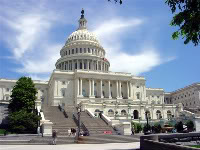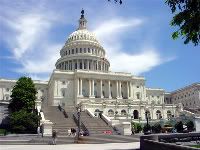US Government — Why So Conspicuously Absent in Renewables?


Some have noted that the lack of a federal renewable portfolio standard (RPS) or national system to reduce emissions has created a climate in various states have taken the initiative. After all, shouldn’t we take solace in the idea that 27 states and the District of Columbia have binding renewable portfolio standards? Utilities that operate in these areas are must generate a certain percentage of their electrical power from renewable sources. It’s also true that many countries outside the US have taken aggressive posture with respect to clean energy. Every week we hear about enormous commitments in this direction from nations all over Europe, Asia, and South America. Shouldn’t we be happy about that?
Sure. But let’s keep asking the obvious question: What’s up with the US? What is it exactly that is causing our national leaders to sit on their hands – an approach that is so clearly wrong?
As I conclude in my book on renewables (available soon), this tragedy is largely driven by an unwanted element of our democratic process, namely, our two-year election cycle. For some foolish reason, we expect our leaders to take actions whose benefits remain largely invisible by the time the next election rolls around. This expectation is completely misplaced; it’s like believing a three-year-old will bolt down the broccoli you serve because the vitamins will keep her healthy. The argument is a non-starter.
Of course we have people on our ballots who claim that they vote their consciences regardless of the political consequence. In fact, there is a name for people in this category: liars.
But the reform of our political process is as tricky as it is imperative, due to the fact that the people who make the rules have an interest in preserving those rules as they currently exist. The only reason these folks were elected in the first place is that they aligned themselves with the power structure and the campaign contributions emanating from that structure. If this vicious cycle is ever to change, it will be forced by people outside that power structure, i.e., a grassroots uprising in which millions of people call FOUL. In the absence of such a movement, there is really no chance for the major changes that are so vital to our success as a nation and as a civilization.
As I argue in my essay on The Civilization that ALMOST Everyone Wants, there are powerful forces controlled by a small fraction of our population that work hard to thwart efforts at progressive reform. My conclusion: Let your voice be heard.

[…] got me thinking about my position on a federal Renewable Portfolio Standard that I’ve been recommending. Maybe this isn’t really a good idea after all. The southwest […]